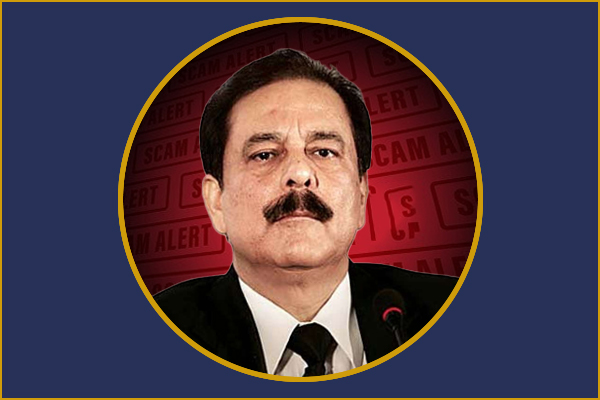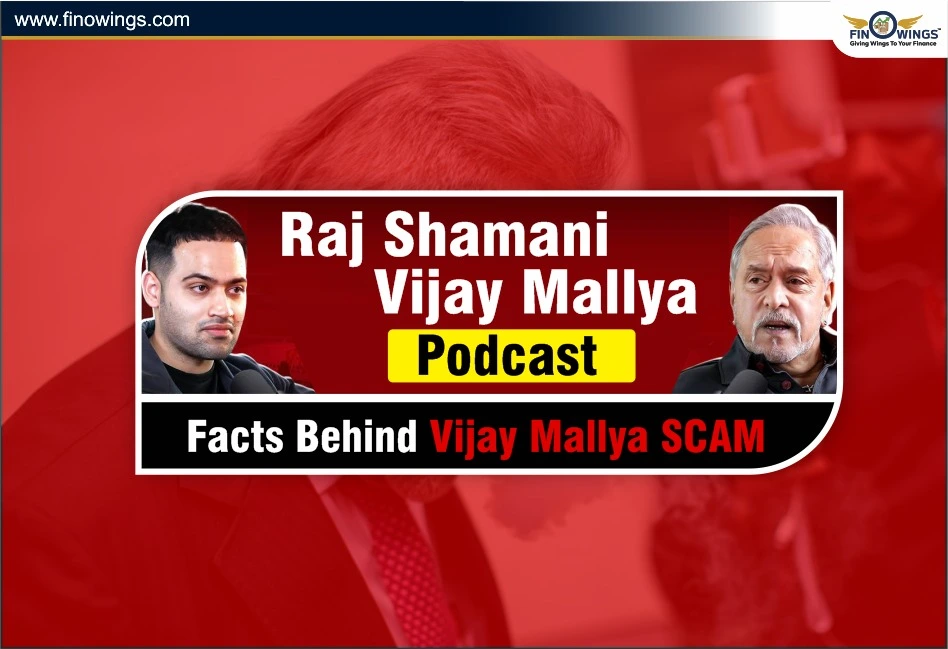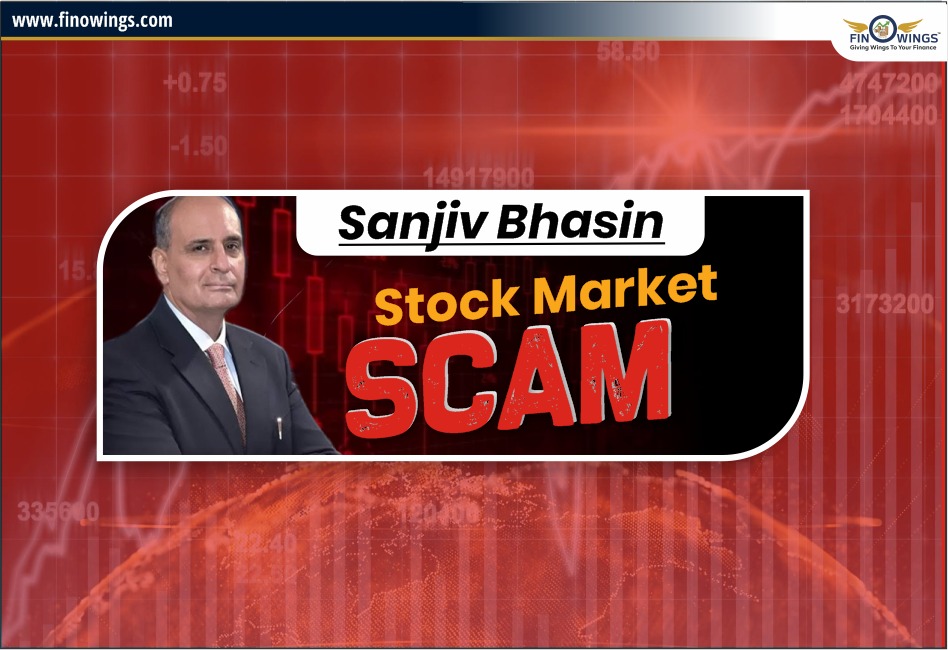Home >> Blog >> The Subrata Roy Sahara Scam 2010 | Case Study
The Subrata Roy Sahara Scam 2010 | Case Study

Table of Contents
The date of February 26, 2014, will go down in Indian society as a turning point as the Hon'ble Supreme Court of India issued a non-bailable summons for Subrata Roy, the chairman of the Sahara India Pariwar. The reality that the victim Subrata Roy of this Rs 25,000 Crore fraud genuinely had to undergo the same repercussions, which is rare for corporate felonies in India, renders this regular and common business scam ludicrous and strange.
Even without providing investor information, the company's failure to do so renders the transactions suspicious and the claims of money laundering more credible. In this blog, we'll discuss the Subrata Roy Sahara India Scam, the circumstances of the scam and where is Subrata Roy now, and what is his net worth?
The Subrata Roy Saga
An Indian group with its head office in Lucknow is Sahara India Pariwar. Subrata Roy founded this group in Gorakhpur in 1978. To raise funds, his company first encouraged the general public to invest. The Sahara India Pariwar Group of Companies was established as his business expanded. Mr.Subrata Roy served as the group's chairman.
His primary areas of commercial interest are finance, media and entertainment, construction and residential, consumer items, information technology, and so forth. The company is a significant sports investor and has long served as the official title sponsor of India's national cricket team. The group employs around 1.4 million people across its more than 5,000 establishments in India. Due to the company's rapid growth, the Revenue Department was already keeping an eye on it.
Overview of The Sahara Scam 2010
- The issue initially surfaced when chartered accountant RoshanLal, who is based in Indore, wrote to the National Housing Bank (NHB), asking it to investigate the discrepancies in housing bonds issued by the two Sahara group companies Sahara India Real Estate Corporation (SIREC) and Sahara Housing Investment Corporation (SHIC), both of which have their headquarters in Lucknow. Subrata Roy noted that the bonds had not been issued per the new requirements.
- Due to a shortage of power to proceed with the matter, the NHB forwarded the complaint to the SEBI. The capital market regulator SEBI examined the draft red herring prospectus that the two firms had prepared. The two firms had prepared to use an IPO to obtain funds for the real estate firm Sahara Prime City Limited. A similar letter was also sent to SEBI by the Professional Group for Investor's Protection, a group of lawyers with offices in Ahmadabad.
- In the investigation that SEBI opened after reading the complaints, it was discovered that the two businesses, SIREC and SHIC, had increased their capital pools by 4,000 and 32,300 crores respectively during the previous four years, with no one held accountably. The corporations were given a show-cause notice, but they were unable to defend this money flow. According to their prospectuses, the two businesses were using OFCD to raise substantial sums of money from the general public.
- According to the law, there are two ways to obtain capital from the market, and for each, two different types of markets - the primary market and the secondary market have been developed. Public issues, rights issues, private placement, venture capital, bonds issued by financial institutions, and similar techniques are examples of primary market means. Securities issued on the main market are sold and acquired on the secondary market. These investors who transact in financial assets on the fictitious stock market are the ones who create it. Despite operating as a public corporation, Sahara's prospectus listed the company as private.
- A red herring prospectus for issuing debentures with more than 934 pages was registered by Sahara Prime City, a Sahara India Pariwar group company. The company's tax disputes with the Income Tax Department over issuing OFCDs for Rs. In the prospectus, 34 crores were disclosed. Additionally, between April 25, 2008, and April 13, 2011, it issued OFCDs to collect money, which was blatantly against what was stated in the company's prospectus.
- The corporation also released initial Public Offerings (IPOs). Throughout this timeframe, the company has amassed a total of Rs. 17,656 crore in revenue. About 30 million people contributed to the collection of the funds. Additionally, it neglected to inform SEBI, the body responsible for market regulation, of the same. The company's liability increased to Rs. 20,000 Crore at the end of 2009.
- The Reserve Bank of India ordered the company to begin winding up procedures and prohibited it from issuing any more debentures. That is where the real problem began. In conclusion, the business was accused of financial fraud and money laundering.

Accountabilities of SEBI
When the NHB submitted the charge in the current case, SEBI took notice. After reading the same, Subrata Roy contested the authority and cited justifications for not requesting approval from SEBI. Before issuing the bonds, Subrata Roy claimed to have submitted its red herring prospectus to the ROC. As a result, they are not engaging in fraud. SEBI told the two Sahara businesses to stop selling the bonds in question and reimburse investors for their money.
Legal Proceedings Against the Subrata Roy- The Sahara Scam 2010
- Subrata Roy failed to deposit the money with SEBI with a three-month deadline and a 15% interest rate. Sahara Group was required by the Supreme Court to pay in three installments.
- Subrata Roy paid the first installment of Rs. 5120 Crores but not the subsequent two payments, claiming that investors had already been reimbursed.
- Only 4600 of the roughly 2-5 million investors came up to retrieve their money.
- Subrata Roy, the chairman of the Sahara Group, was detained on the Supreme Court's orders on February 26, 2014. Sahara Group was accused of money laundering by the Enforcement Directorate in November 2017.
The constant money laundering by Subrata Roy
A total of 170 trucks packed with investor information were delivered to SEBI, but only a small portion was accepted because it was late. Investigation revealed that the investor information was inaccurate. Additionally, the money was not deposited to Subrata Roy within the required three months.
Apex mandated Sahara to pay the money in three installments. Subrata Roy did not pay the other two deposits and only made the initial payment of Rs. 5120 crores. Subrata Roy argued that they had already provided the funds to the investors. Subrata Roy claimed that they had already made the payments, but only about 4600 investors came forward to complain that they had not received their money.
As a result, the court demanded evidence and information on the funding source for the returns.
Where is Subrata Roy Now and His Net Worth?
According to the media, currently, Subrata Roy is living at his home in Lucknow, Uttar Pradesh. Subrata Roy's net worth is estimated to be about $ 200000.
Conclusion on The Sahara Scam 2010
How ineffective our system is when the battle is against muscle and money is demonstrated by the fact that a corporate swindle of this magnitude, which initially came to light in the year 2009, could last until the first conviction by the Supreme Court in the year 2014.
Even then, we learned of SEBI's crucial role in this case. Without this role, we might miss a massive scam. Unfortunately, we won't be able to stop these instances even with all the rules that will soon be passed in this area. This is because the legal system lacks activism, there are always loopholes, and money has too much power.
Want to start Your Journey in stock market trading and investment? Join our Stock Market Class to become beginner to expert trader! We cover everything from the basics of trading to advanced strategies for picking stocks. Plus, we're offering a special discount for women and students. Don't miss out - enroll now and kickstart your path to success in the stock market!
Open a world of Stock Market by Opening a Demat Account with your favourite Broking firm & Get a trading Strategy worth Rs.15,000!
Author
Frequently Asked Questions
The Sahara India Scam refers to the fraudulent activities involving two Sahara group companies, Sahara India Real Estate Corporation (SIREC) and Sahara Housing Investment Corporation (SHIC), which raised approximately ₹25,000 crores through illegal bonds known as OFCDs (Optionally Fully Convertible Debentures). The scam came to light due to the discrepancies in the bonds issued and the failure to comply with regulatory norms.
The scam was uncovered when Roshan Lal, a chartered accountant, reported the irregularities to the National Housing Bank (NHB). The NHB, lacking jurisdiction, forwarded the complaint to SEBI (Securities and Exchange Board of India). SEBI’s investigation revealed that SIREC and SHIC had amassed significant funds illegally, prompting legal action and subsequent orders for Sahara to refund the investors.
Subrata Roy, the chairman of Sahara India Pariwar, was issued a non-bailable warrant by the Supreme Court of India on February 26, 2014, for failing to comply with court orders. The Supreme Court ordered Sahara to refund the investors' money in three installments. Subrata Roy was arrested, and despite making an initial payment of ₹5120 crores, he failed to complete the remaining payments, claiming that the investors had already been reimbursed.
As of the latest reports, Subrata Roy is living at his home in Lucknow, Uttar Pradesh. His net worth is estimated to be around $200,000. Despite the legal battles and ongoing scrutiny, he remains a significant figure in Indian business circles.
SEBI played a crucial role in uncovering the Sahara Scam. Upon receiving the complaint from NHB, SEBI’s investigation into the illegal bond issues by SIREC and SHIC was pivotal in bringing the fraudulent activities to light. SEBI's actions led to legal proceedings against Sahara, emphasizing the importance of regulatory bodies in monitoring and enforcing compliance within financial markets.

















